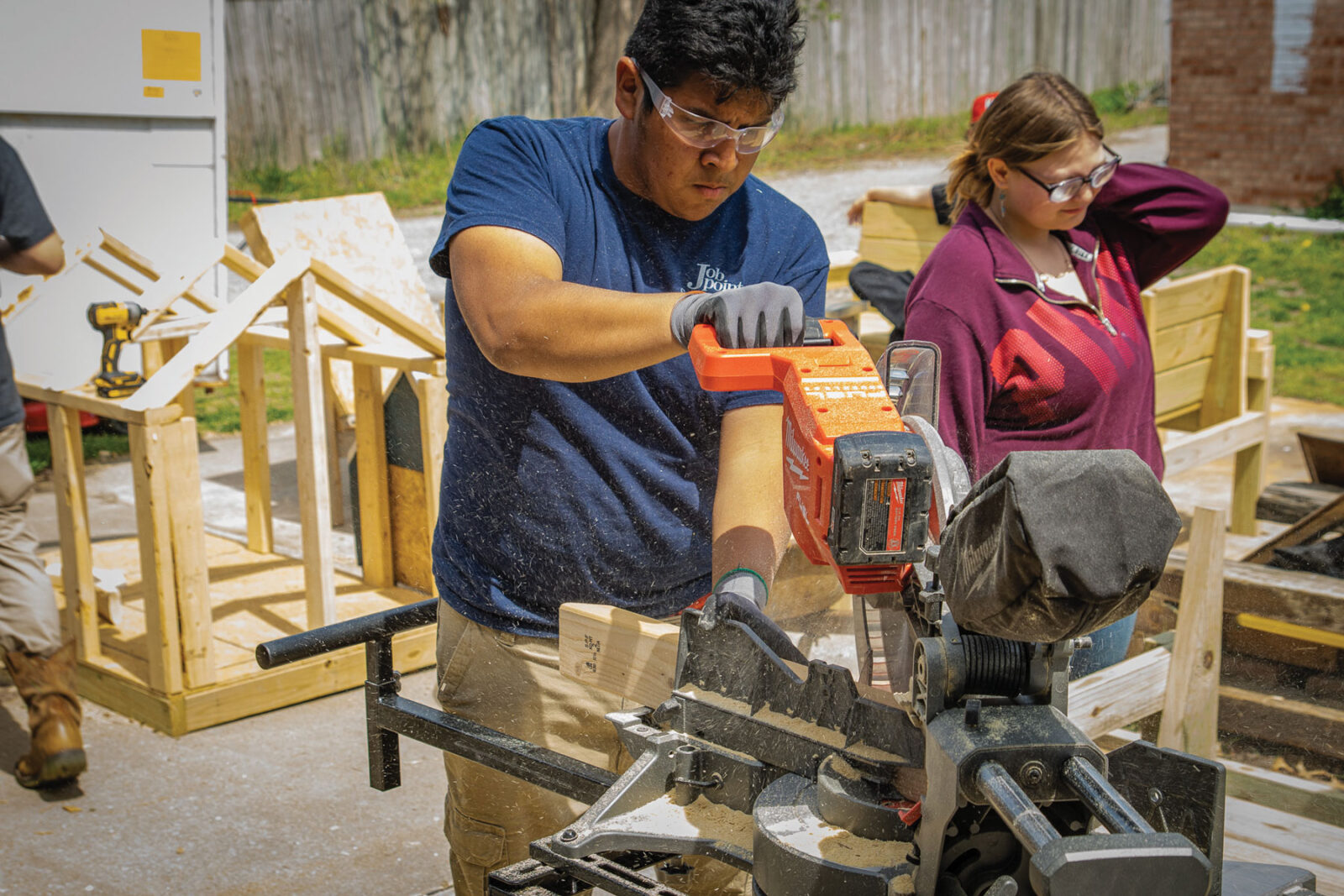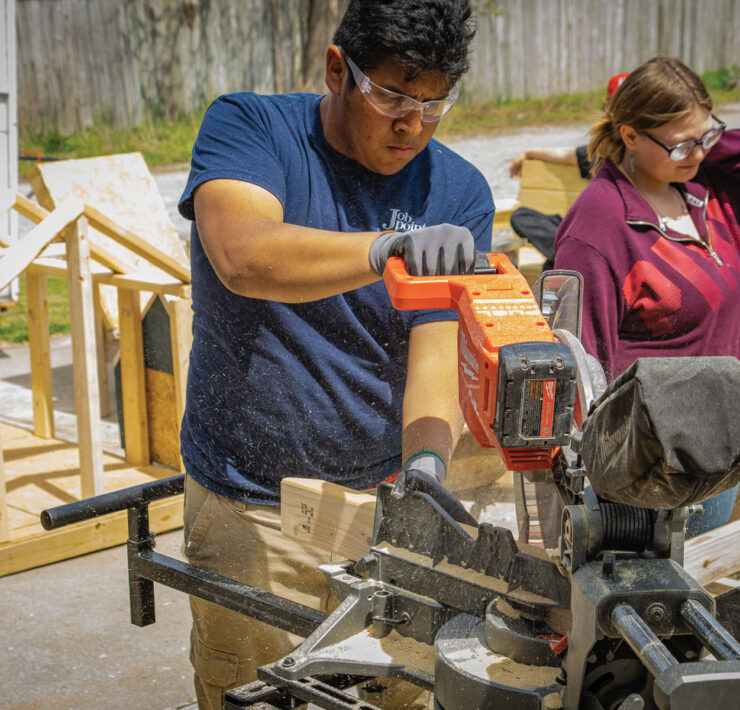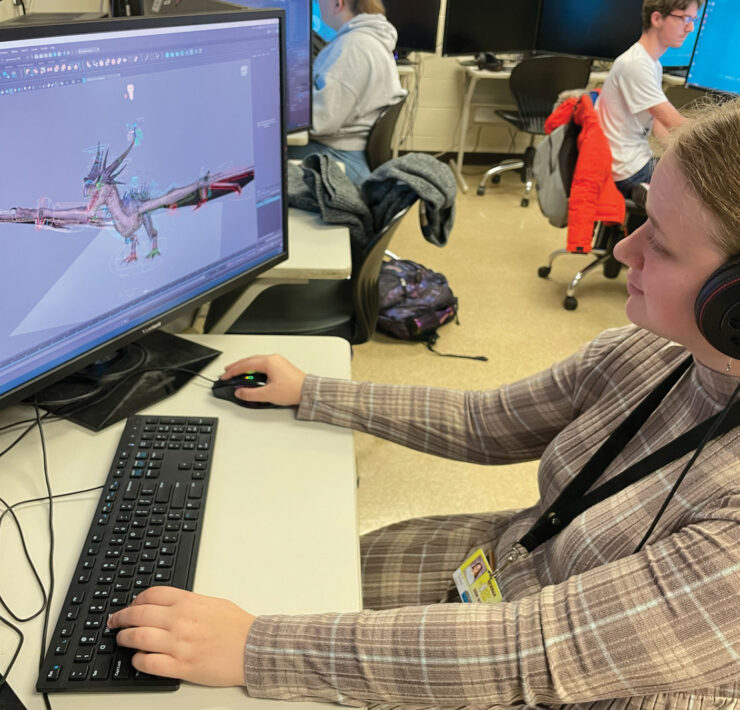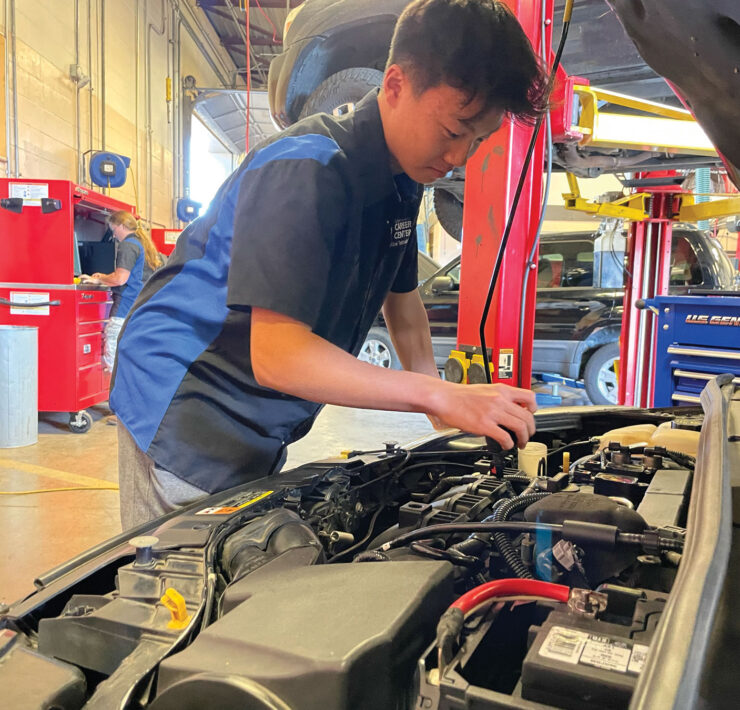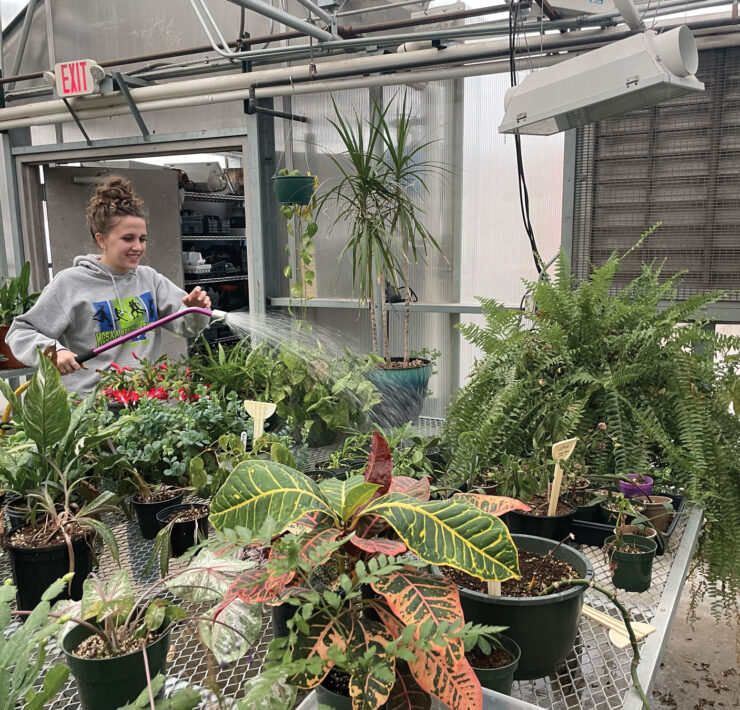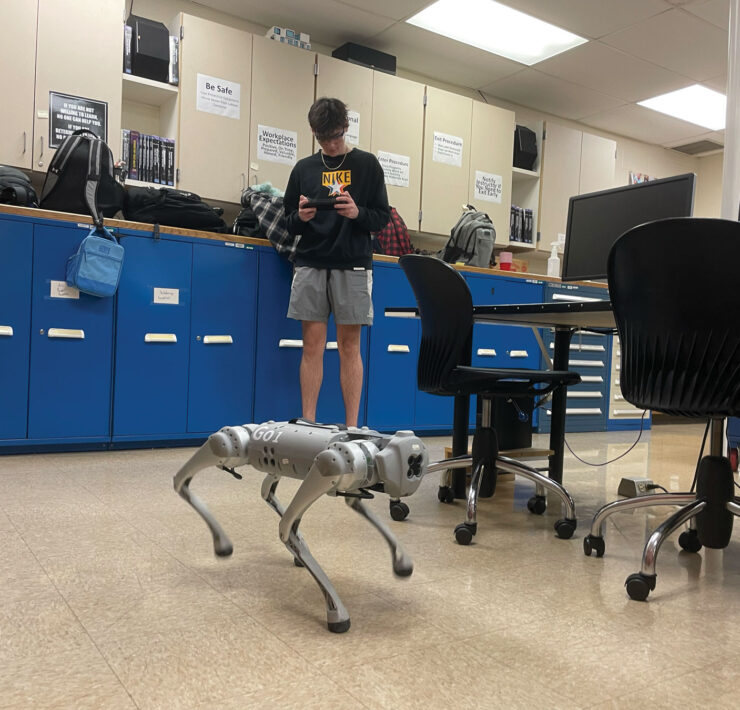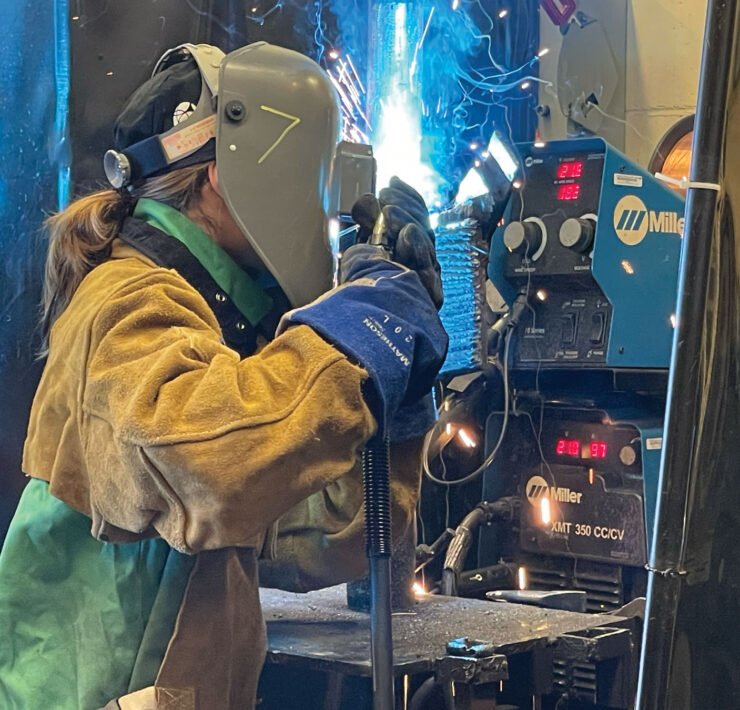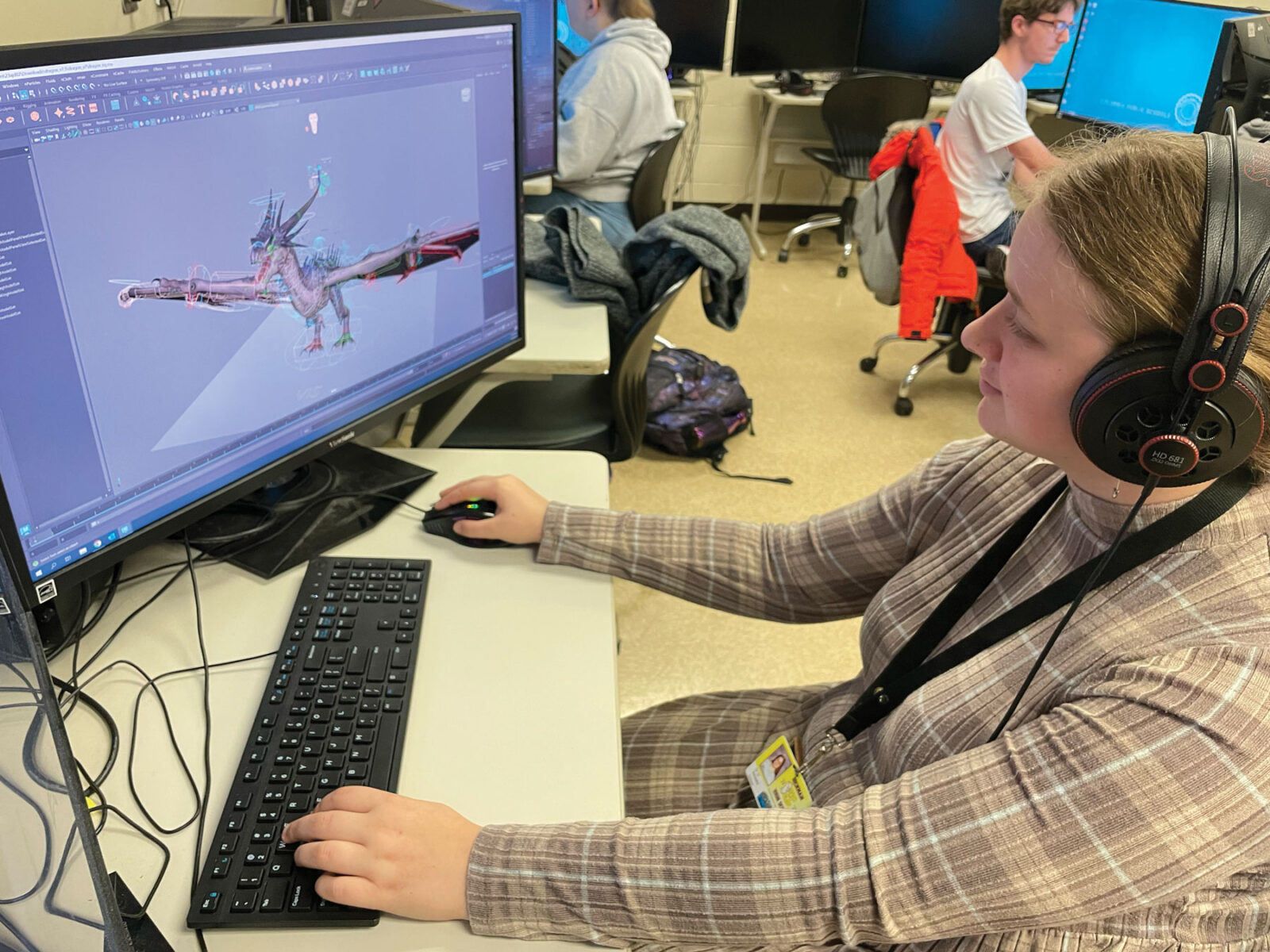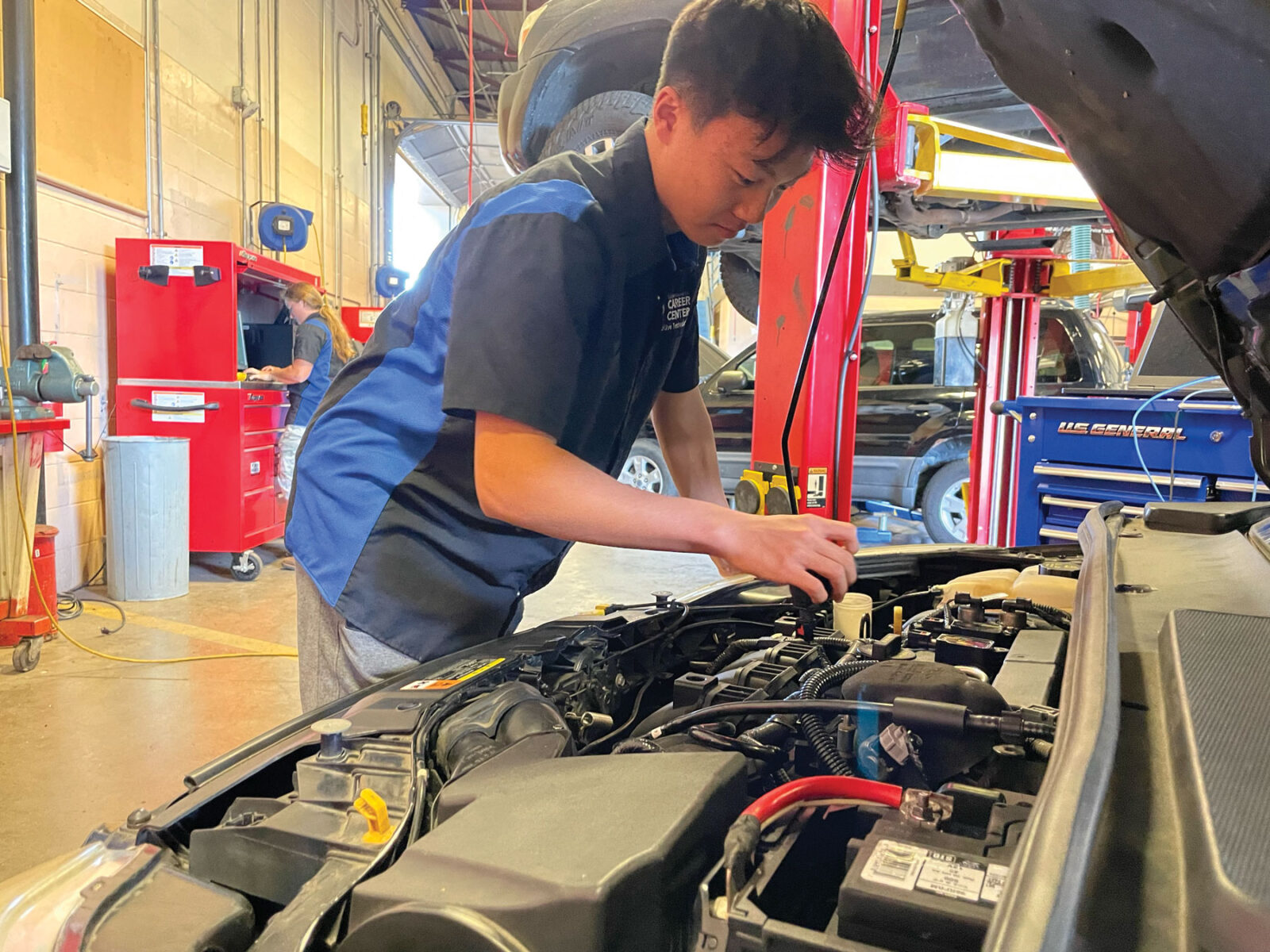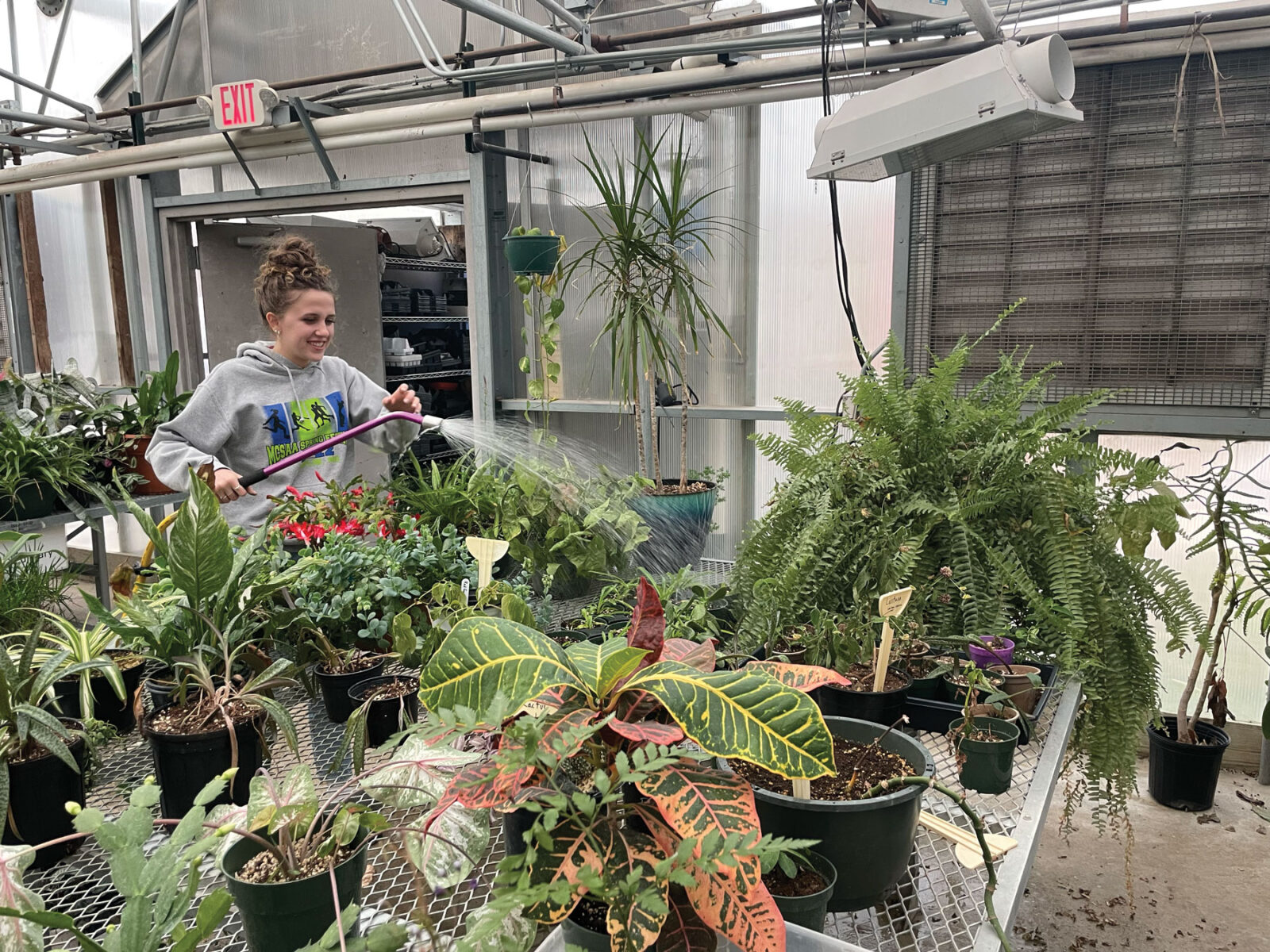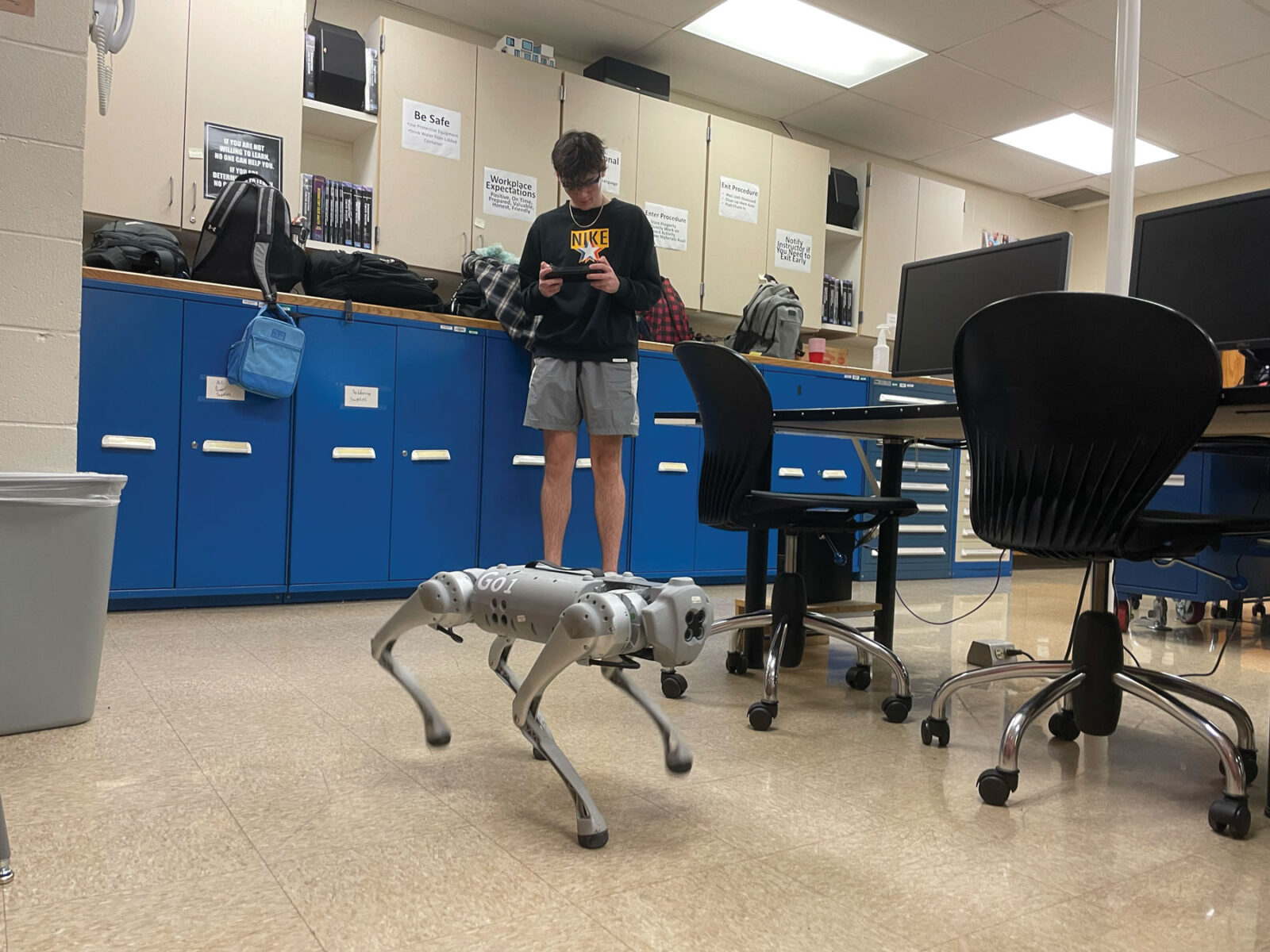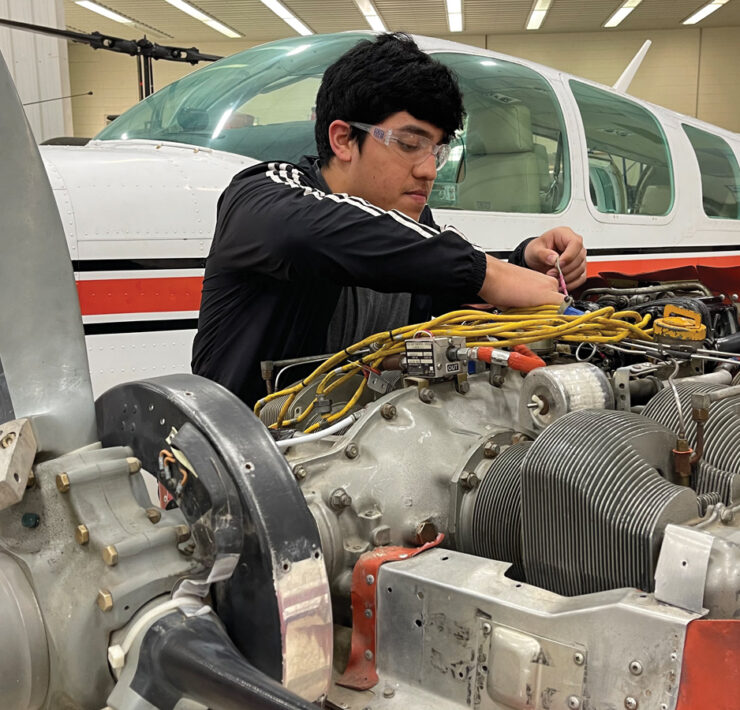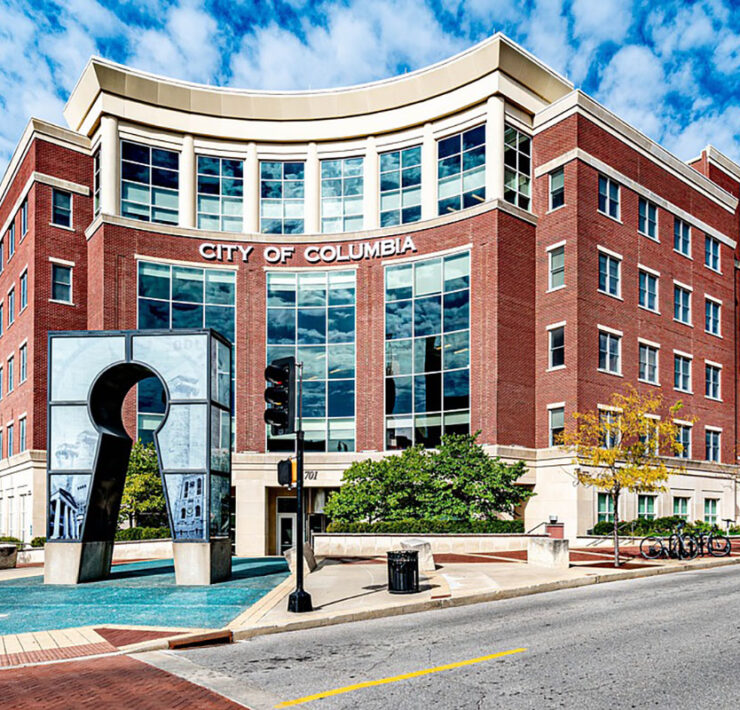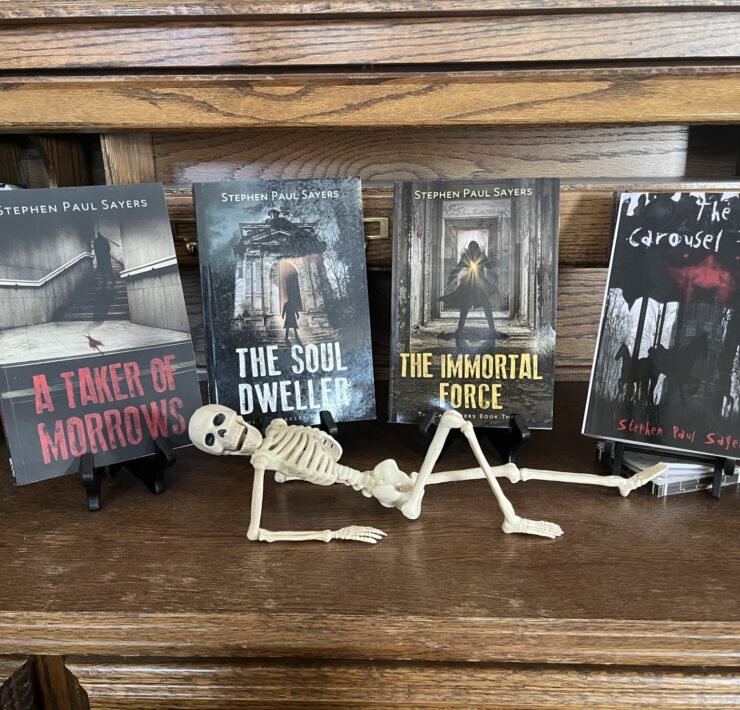No degree, no job? Not anymore.
- This story originally appeared in the May 2023 issue of COMO Magazine.

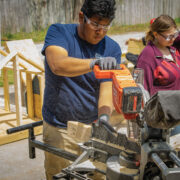

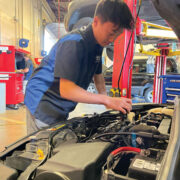
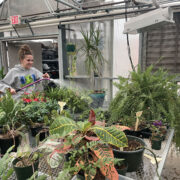 +3
+3 No degree, no job? Not anymore.
Job Point, Columbia Career Center, and Columbia CARE prep residents for employment.
Young people who don’t have a plan or a yearning to go to college: Listen up. It’s possible to find a career that will not require a college degree. In fact, says Ron Schmidt, program director of Columbia CARE, there are good, high-paying jobs “just begging to be filled.”
“If you get the certification to be an equipment operator, you can write your own ticket,” Ron says. “We’re trying to get people to start seeing that.”
An equipment operator certification program could be up and running within the next year as part of the Career Awareness Related Experience — or CARE program — that has been part of the Columbia Parks and Recreation Department since 1982. CARE currently hires around 150 Columbia youths ages 14 to 20 each summer, placing them at businesses where they gain real-world, hands-on work experience while getting paid. All of the wages are paid by CARE, though Ron likes to see the businesses treat the workers like one of the business’s own employees.
He emphasizes that all worker liability — worker’s comp insurance, for instance — is the city’s responsibility.
The equipment operator training would be an expansion of CARE and would meet an urgent need the city is experiencing with its own workforce. For now, CARE workers are placed at local restaurants, daycare facilities, retail shops, hospitals, local parks, and other locations. CARE is operated from the Armory Sports and Recreation Center at 701 East Ash St.
‘It’s not for everybody.’
Just don’t get the notion that Ron eschews a college education or a fulfilling degree program. After all, he has a bachelor’s and a master’s degree, and his children have multiple degrees.
“It’s a wonderful way to go,” he says. “But it’s not for everybody.”
Some Columbia CARE trainees do end up going to college. Some have waded into the world of entrepreneurship. Others have stayed with their summer work site — as many as a quarter of the summer workers will be offered employment when their eight-week CARE stint is over. It’s not uncommon to find out that a few of the CARE workers are still at the same job 20 or 30 years later.
Ron recently oversaw the hiring of 110 teens from a pool of more than 300 applicants. (The application deadline was Feb. 28.) A paid internship program with the city will add a few dozen more workers. Based on the minimum wage, which has grown while the CARE budget has not increased, the program hired as many as 250 teens 10 years ago. That number is now roughly 150.
Some workers will return for a second or third time to the CARE summer program. Even if they do not enter the field or industry where they are placed, the experience is invaluable, Ron says.
“They are going to learn hard skills at their worksite,” he explains. “But to be successful, it’s the ‘soft skills’ — learning how to show up on time, how to communicate, the work ethic, hundreds of different things. If we improve your soft skills over the summer, you’re going to be more effective the rest of your life.”
The soft skills factor is also front-and-center at Job Point, which helps individuals get training and find employment.
“Soft skills are a much bigger point of emphasis,” says Job Point President and CEO Steve Smith. He notes that it’s not uncommon to hear that an employer might have offered a job interview to a half-dozen or more applicants, “and they’re lucky if two or three will show up for the interview.”
And those that do show up? “They’re likely going to get a job,” he says.
Post-COVID hiring picture
The focus on soft skills is especially crucial since the pandemic, Steve adds. Now in the post-COVID hiring landscape, many employers are “much more open minded” to hire workers who do not have either formal training or a college degree. He emphasized that conclusion was his opinion, not an official Job Point stance.
“If they have people that will show up and halfway try to get along, they’ll train them in what they need to know,” he adds.
It’s the “get along” factor that seems to elude some unemployed or underemployed residents. Workers who have a good understanding of so-called “soft skills” — knowing how to effectively communicate, showing up for work on time, not being glued to a smartphone, getting along with others, and showing a solid work ethic — will stand out from other applicants.
The lack of training in soft skills isn’t necessarily a new phenomenon, he says.
“From time to time we see people with lengthy resumes, but they can’t maintain a job for a long period of time, even though some of them have very strong technical capabilities,” Steve explains, saying that scenario often exposes a lack of soft skills. “We have people with three, four-page resumes, but it’s two months, three months, four months on the job. It’s how they interact with people, primarily” that results in lack of longevity with an employer.
Job Point, a fully accredited health and human services nonprofit organization, specializes in preparing individuals to enter the workforce. It serves people with disabilities, people with defined economic disadvantages, youths ages 16 and over, people on probation or parole, and unemployed Columbia residents. Headquartered in Columbia, Job Point also has offices in Boonville and Moberly.
For the fiscal year ending September 2022, Job Point served 235 people, with job seekers entering employment at an average hourly wage of $13.82. Eighty-four percent of adults maintained employment for at least 90 days. Steve says most workers who reach the 90-day mark will stay with that employer for a longer period.
“We’re not just trying to get people a job,” he says. “We’re trying to get them to maintain employment.”
Bouncing back
The placement of 235 people in fiscal 2022 was just under half the nearly 450 total served in 2019, prior to the COVID pandemic.
“Our numbers were way down during COVID because jobs were abundant,” he says. Those numbers are getting back to normal, thanks to a large database of employers looking for workers and with some individuals seeking more soft skills training.
Steve points to other organizations that help train workers for jobs that don’t always require a college degree. CARE caters to clientele younger than those who seek Job Point services and the Columbia Area Career Center has “some very strong programming” that is geared toward non-traditional trades.
Job Point helps with training for office technology positions (ranging from medical to financial offices, among others), certified nursing assistants, and construction trades, the latter of which begins a new warehouse class in May.
“We’ve talked to several employers who said if [workers] will show up and get training on the equipment, they can go to work,” Steve adds. “If they’ll show up, do some research on the employer they’re applying with, be able to communicate in the interview you understand what the company does — show up and be polite — you’ll get a job. That’s a very rare environment.”
Columbia Area Career Center
Columbia Area Career Center (CACC) at 4203 S. Providence — right next to Rock Bridge High School — offers Career Technical Education (CTE) training to better prepare for college or to enter the workforce.
“They can go straight to the workforce, get further certification, or be more prepared for college,” says Amanda Brown, CACC communication strategist. “We give all our students those three opportunities” if their chosen profession allows those options. Students will receive an industry-recognized credential if they complete the course sequences.
CACC course work is integrated with CPS curriculum. Students still attend regular classes for math, science, and other college preparatory courses. CACC has from 2,500 to 3,000 students each semester and there are also campuses at Hickman and Battle high schools. Students may also be transferred among the three campuses. If a family lives within the CPS boundaries but has a student who attends Tolton Catholic High School, that student may take classes at CACC tuition-free. The career center also has students from Christian Fellowship School, homeschool families, and Centralia Public School. The Centralia School District pays the cost of its students attending CACC.
“As long as you’re within the district, it is a part of everybody else’s property tax,” Amanda says.
CACC has a staff of 64 staff and administrators.
Most career centers throughout the state serve several school districts because they are typically located in more rural areas and drawing from other areas makes more sense.
“We’re just a different school district because we encompass so much” due to the district’s size, Amanda adds. Other parts of Boone County have career center connections in other areas. Harrisburg, for instance, transports its students to Moberly, and Ashland High School students attend the career center in Jefferson City.
Like Job Point, CACC is “constantly obtaining data,” Amanda says, for reporting on how local, state, and federal funding sources are used. There are also industry-recognized credentials that must be maintained. The reporting includes a one-year follow-up survey with students to find out what career path the student is on. Students who go to work and stay in their field for a full year are invited to be part of CACC’s advisory board for each industry that is served. Students in the digital media department will help CACC stay current on classroom equipment and teaching techniques.
“It comes full circle,” Amanda says.



